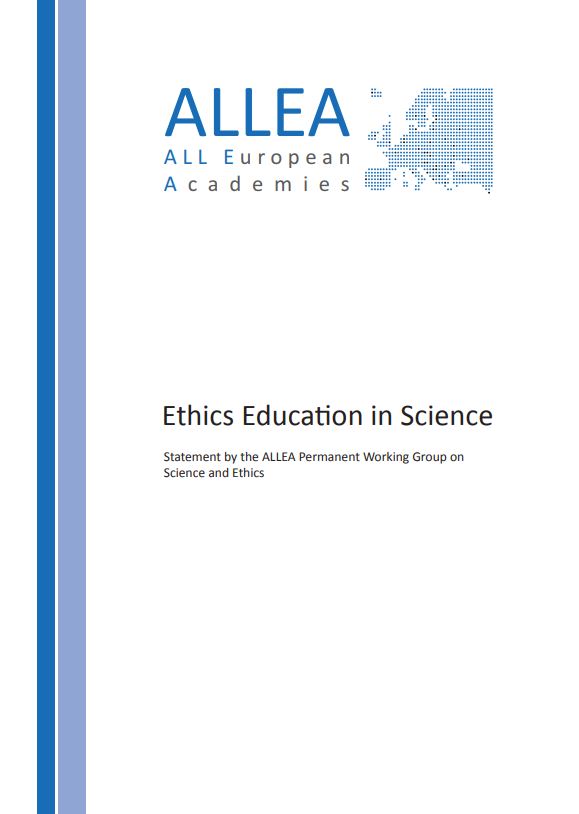Ethics Education in Science
Trust in the scientific enterprise and in the conduct of scientific research is fundamental for fruitful interaction within the scientific community as well as between it and society at large.
At the present time, perhaps more than ever, researchers need to be able to take decisions based on a solid legal, ethical and scientific understanding of the subject matter and its potential implications for science and society.
ALLEA argues in this statement that societies need to set aside or create resources (time, human resources, knowledge banks etc.), so as to ensure
that all research is conducted by individuals who have the necessary literacy in ethics.
Ethics education in science should cover both internal and external research ethics, both canons of good research practice and ethical aspects of the relations between science and society.
To ensure that practitioners of science and research have robust guidance when they seek to follow the principles and commitments of their fields, universities and research institutes should provide a continuously updated education in ethics in all fields of scientific research.
The recommendations in this statement are addressed to universities, academies and other research-performing organisations with the responsibility
of educating and employing researchers, as well to the governments and other funders who ultimately have to ensure that their funds, public or private, are used by beneficiaries who show full respect for the principles of responsible conduct of research.
The document is divided into two parts. This first part presents general principles and recommendations. The second part, with practical examples
and references to on-line resources, will follow later.




